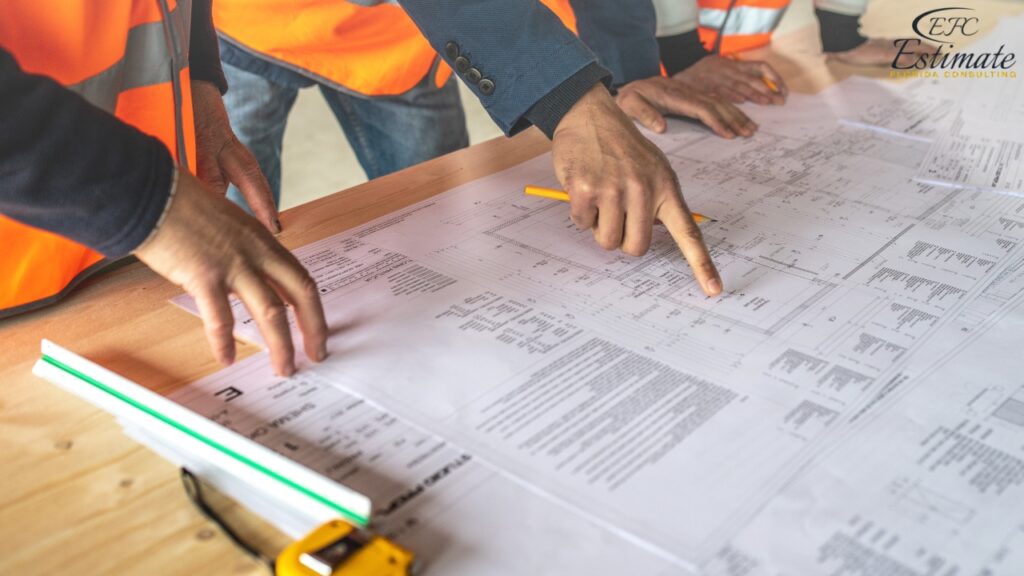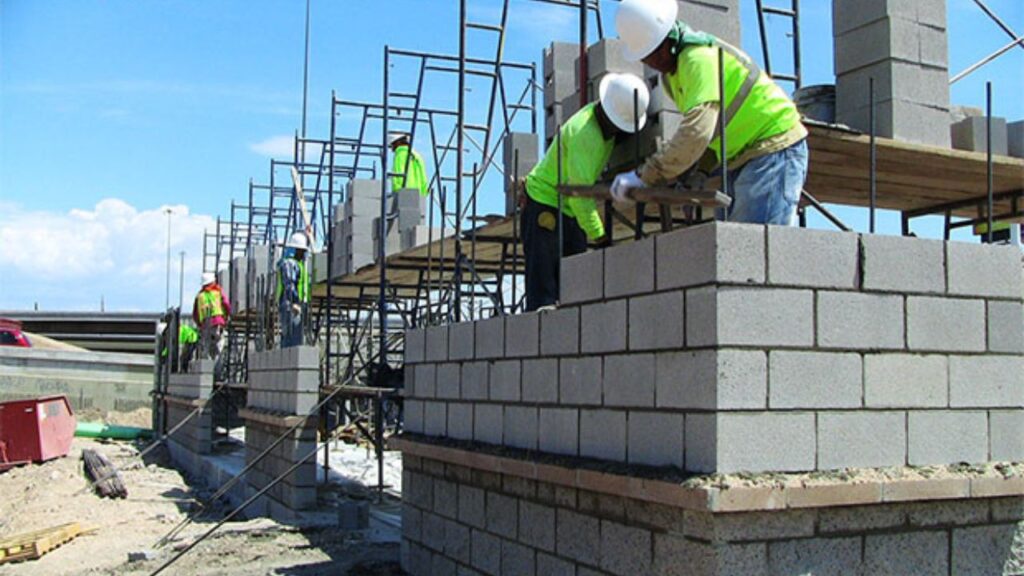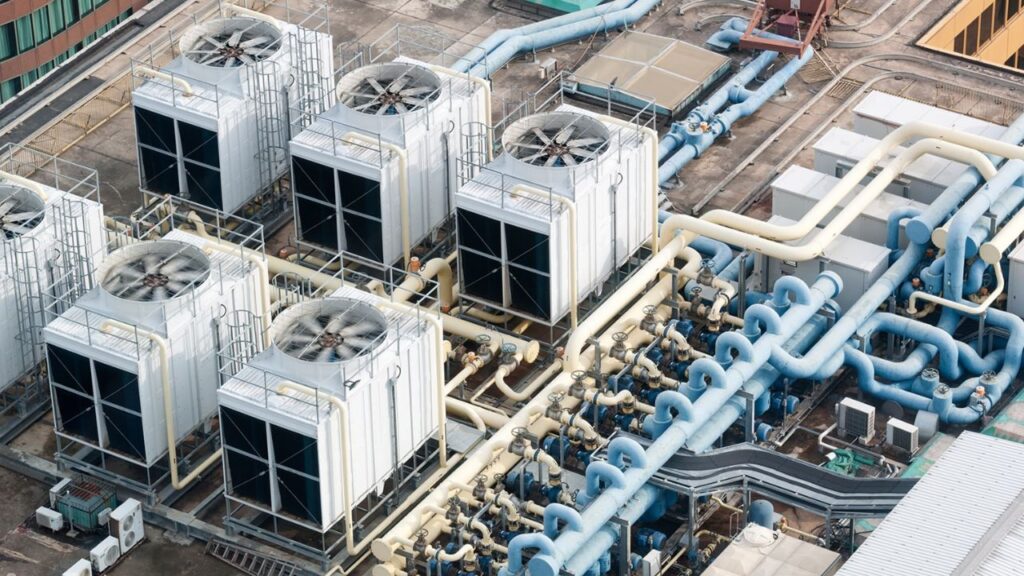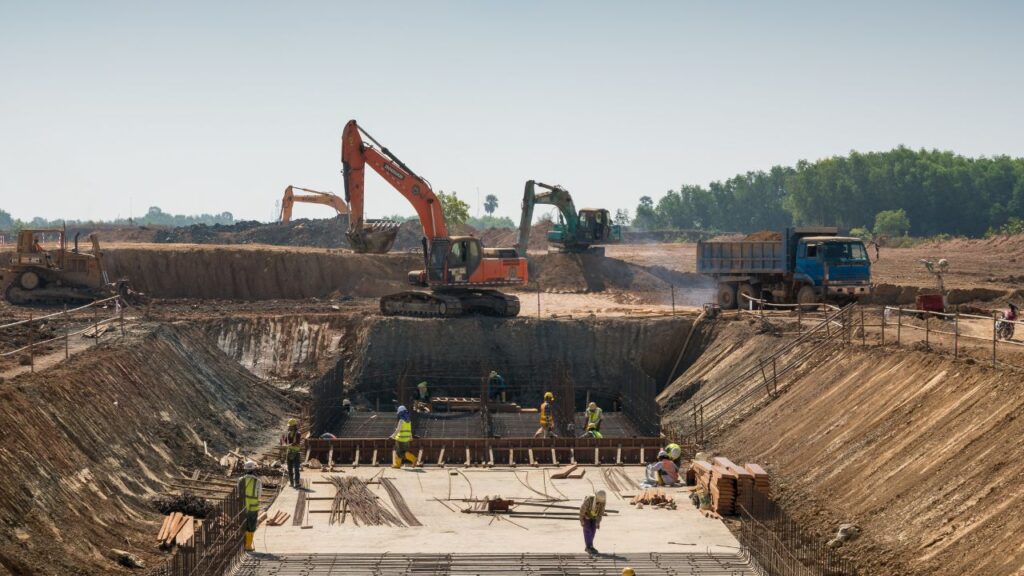- Homepage
- Blogs
Construction Management Fee Estimator
Leading provider of construction management fee estimating.
Effective construction management is critical for the success of any construction project. It involves overseeing project planning, scheduling, budgeting, and quality assurance to ensure that a project is completed on time, within budget, and to the specified quality standards. The construction management fee is the cost associated with hiring a professional or firm to handle these responsibilities.

What Are Construction Management Fees?
Construction management fees cover the costs associated with the professional services provided by a construction manager, including project planning, scheduling, budgeting, coordination, and quality control. Construction managers ensure that projects adhere to timelines, budgets, and regulatory requirements while maintaining quality standards. These fees can vary significantly based on the complexity of the project, the scope of services required, and the chosen fee structure.
Types of Construction Management Fee Structures
Fixed Fee Structure
In a fixed fee structure, the construction manager agrees to a set fee for overseeing the entire project, regardless of changes in project cost or duration. This type of fee structure is beneficial for projects with a well-defined scope and limited anticipated changes.
Percentage Fee Structure
With a percentage fee structure, the construction management fee is calculated as a percentage of the overall project cost, typically ranging from 5% to 15%. This structure is common for large-scale or complex projects, as the fee adjusts with project scope changes and cost fluctuations.
Hourly Rate Structure
An hourly rate structure involves billing the client based on the number of hours worked on the project. This structure is ideal for smaller projects or those with uncertain timelines, as it allows flexibility and precise tracking of hours worked.
Cost Plus Fee Structure
In a cost-plus arrangement, the construction manager is compensated based on the actual costs incurred plus an additional fee, either as a fixed amount or a percentage. This structure is commonly used in projects where costs are difficult to estimate initially and may fluctuate throughout the process.
Win More Projects With Us
Factors Influencing Construction Management Fees
Several factors influence the construction management fee for any project, including:
- Project Complexity: Complex projects with unique design or regulatory challenges typically incur higher management fees.
- Location: Projects in urban areas or high-cost regions may lead to increased fees due to higher labor and material costs.
- Duration: Longer projects often have higher fees to cover extended oversight and management.
- Risk Factors: Projects with high-risk factors, such as environmental considerations or tight deadlines, may involve premium fees.
- Scope of Services: The more extensive the services required, the higher the fee. Services can range from basic project coordination to full-service management, including procurement, quality control, and client reporting.
Average Construction Management Fee by Project Type
The type of construction project influences the fee structure and amount due to variations in scope, complexity, and required services.
Residential Construction Management Fees
For residential projects, including single-family homes and multi-family units, construction management fees typically range from 5% to 10% of the total project cost. This fee range accommodates services such as project coordination, contractor supervision, and quality assurance.
Residential Project Type | Average Management Fee Percentage |
Single-Family Home | 5% – 8% |
Multi-Family Residential | 6% – 10% |
Custom Residential Project | 8% – 12% |
Commercial Construction Management Fees
Commercial projects, such as retail buildings, office spaces, and mixed-use developments, often incur fees between 8% and 15% of the project cost, reflecting the increased complexity and regulatory requirements of these projects.
Commercial Project Type | Average Management Fee Percentage |
Office Building | 8% – 12% |
Retail Space | 8% – 15% |
Mixed-Use Development | 10% – 15% |
Industrial Construction Management Fees
Industrial projects, including warehouses, manufacturing facilities, and distribution centers, generally require specialized expertise, leading to fees that typically range from 10% to 20% of the total project cost.
Industrial Project Type | Average Management Fee Percentage |
Warehouse | 10% – 15% |
Manufacturing Facility | 12% – 18% |
Distribution Center | 12% – 20% |
Construction Management Fee by Project Size
The size of a construction project directly affects the management fees, as larger projects often involve more coordination, subcontractor management, and resource allocation. For small-scale projects (under $500,000), fees may range from 8% to 15%, while large-scale projects (over $10 million) may see fees between 5% and 10% due to economies of scale.
Project Size | Average Management Fee Percentage |
Small-Scale (< $500,000) | 8% – 15% |
Mid-Size ($500,000 – $5M) | 7% – 12% |
Large-Scale (> $10M) | 5% – 10% |
Construction Management Fee by Project Duration
Longer projects require sustained management efforts, leading to potentially higher fees. Short-term projects (under six months) typically incur fees ranging from 5% to 12%, while long-term projects extending over two years may have fees between 8% and 15% to account for prolonged oversight.
Project Duration | Average Management Fee Percentage |
Short-Term (0-6 months) | 5% – 12% |
Mid-Term (6 months – 2 years) | 7% – 13% |
Long-Term (2+ years) | 8% – 15% |
Construction Management Services Included in Fees
Construction management fees cover a range of services tailored to the project’s needs. Here’s an overview of common services:
- Project Planning and Scheduling: Coordinating timelines, setting milestones, and ensuring adherence to project schedules.
- Budgeting and Cost Control: Managing project finances, tracking expenses, and controlling costs to avoid budget overruns.
- Contractor Coordination: Overseeing subcontractors, ensuring compliance with safety regulations, and managing communication.
- Quality Assurance: Inspecting work to maintain high standards and address deficiencies.

- Regulatory Compliance: Ensuring all work complies with local codes, zoning laws, and environmental regulations.
- Risk Management: Identifying potential risks and developing mitigation strategies to safeguard the project timeline and budget.
Cost Breakdown for Construction Management
The cost of construction management typically includes several components, each contributing to the overall fee.
Service Category | Percentage of Total Fee |
Project Planning | 10% |
Budgeting and Cost Control | 15% |
Contractor Coordination | 25% |
Quality Assurance | 20% |
Regulatory Compliance | 15% |
Risk Management | 15% |
This table provides a breakdown of construction management services, showing how each aspect contributes to the total fee. Larger or more complex projects may require adjustments in these percentages to address specific project needs.
Cost Breakdown of Construction Management Fees
A detailed breakdown of construction management fees provides clarity on what is included in the total fee and helps project owners understand the value provided by the construction manager.
Pre-Construction Services
Pre-construction services cover initial planning and project setup, including site assessments, budgeting, permitting, and scheduling. These services typically represent 15% to 25% of the total management fee and are critical in establishing a strong foundation for project execution.
Construction Phase Services
The bulk of construction management fees are allocated to the construction phase, where the manager oversees day-to-day operations, schedules subcontractors, manages budgets, and ensures quality control. This phase accounts for 60% to 70% of the total fee.
Post-Construction Services
Post-construction services include final inspections, punch list management, and project close-out. These services typically account for 5% to 15% of the total management fee, ensuring that the project is completed to the client’s satisfaction and all regulatory requirements are met.
Get Acquainted
Estimation Softwrae for Contractors
Regional Variations in Construction Management Fees
Construction management fees can vary significantly based on geographic location. In regions with a high cost of living, such as major metropolitan areas, fees tend to be higher due to increased labor and overhead costs. Conversely, in rural or less developed areas, fees may be lower. For example, fees in Miami or Orlando are generally higher than those in smaller cities across Florida, reflecting the added complexity of projects in urban environments.
Tips for Reducing Construction Management Costs
- Select the Right Fee Structure: Choosing a fee structure that aligns with your project’s needs can help manage costs. For smaller projects, a fixed fee or hourly rate might be more economical than a percentage-based fee.
- Plan Thoroughly: Investing time in the pre-construction phase can help reduce costs during the construction phase by minimizing change orders and unforeseen expenses.
- Negotiate Discounts for Longer Projects: Some construction managers offer reduced rates for extended projects. Discuss these options upfront to potentially lower the overall fee.
- Utilize Technology: Leveraging project management software can reduce the need for frequent on-site visits, helping to control management fees, especially for remote projects.
Download Template For Construction Project Breakdown
- Materials list updated to the zip code
- Fast delivery
- Data base of general contractors and sub-contractors
- Local estimators

Conlusion
Construction management fees are essential for ensuring a project is well-planned, stays on budget, and meets quality standards. These fees cover services like scheduling, budgeting, contractor coordination, and risk management. Fee structures vary, with options like fixed fees, percentage-based, and hourly rates tailored to different project needs. Project complexity, size, and location significantly impact costs, as do specific service requirements. While fees can be high, careful planning, choosing the right fee structure, and utilizing technology can help manage expenses effectively, making construction management a valuable investment for a successful project outcome.
Question Answer
Frequently Asked Question
Construction management fees cover costs associated with professional services like project planning, scheduling, budgeting, coordination, and quality control. These fees ensure the project adheres to timelines, budgets, and quality standards.
Common structures include fixed fees, percentage fees, hourly rates, and cost-plus fees, each suited to different project types and complexities.
Larger or complex projects require more coordination and resources, often resulting in higher fees. For example, fees can range from 5% to 20% depending on the project’s demands.
Residential projects typically incur fees from 5% to 10%, while commercial projects can range from 8% to 15%, reflecting increased complexity and regulatory requirements.
Fees are higher in urban and high-cost areas due to increased labor and overhead costs. For instance, fees in cities like Miami are generally higher than in rural regions.
They cover project planning, budgeting, contractor coordination, quality assurance, regulatory compliance, and risk management.
Budgeting and contractor coordination often constitute the largest portions, around 25% and 20% respectively, with other services like quality assurance and risk management making up the remainder.
Yes, especially for long-term projects. Discussing potential discounts upfront can sometimes lower the total fee.
Project management software can streamline processes, reduce on-site visits, and help manage remote projects efficiently, contributing to cost savings.
Yes, luxury private clubhouses often cost between $350 and $450 per square foot due to premium materials, custom designs, and exclusive amenities like spas and gourmet dining areas.
Comprehensive Trade-Specific Estimates
At Estimate Florida Consulting, we offer detailed cost estimates across all major trades, ensuring no part of your project is overlooked. From the foundation to the finishing touches, our trade-specific estimates provide you with a complete and accurate breakdown of costs for any type of construction project.

Testimonials
What Our Clients Say
We take pride in delivering accurate, timely, and reliable estimates that help contractors and builders win more projects. Our clients consistently praise our attention to detail, fast turnaround times, and the positive impact our estimates have on their businesses.
Estimate Florida Consulting has helped us win more bids with their fast and accurate estimates. We trust them for every project!

Steps to Follow
Our Simple Process to Get Your Estimate
01
Upload Plans
Submit your project plans, blueprints, or relevant documents through our online form or via email.
02
Receive Quotation
We’ll review your project details and send you a quote based on your scope and requirements.
03
Confirmation
Confirm the details and finalize any adjustments to ensure the estimate meets your project needs.
04
Get Estimate
Receive your detailed, trade-specific estimate within 1-2 business days, ready for your project execution.
















